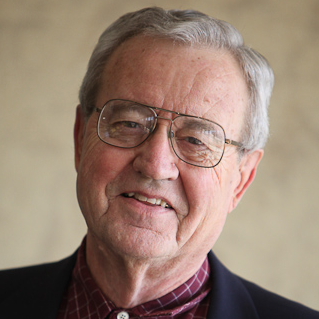 Powerful, thought-provoking discussion by Dallas Willard on what CS Lewis discussed in book 4 of Mere Christianity. This was made in 2003, during the 40th anniversary of CS Lewis' death.
Powerful, thought-provoking discussion by Dallas Willard on what CS Lewis discussed in book 4 of Mere Christianity. This was made in 2003, during the 40th anniversary of CS Lewis' death.
The following summary is from the UC SD website. There is a link to the video at the end of this summary.
Dallas Willard, Professor of Philosophy at the University of Southern California, addresses "Beyond Personality," dealing with the last book of Mere Christianityby C. S. Lewis. Willard begins his talk by showing us that the public's interest today in heroes-whether in movies, sports, politics-is about "transcending," that is, about getting beyond personalities. The hunger for transcendence, the desire to escape, entices everyone to try to get "beyond personality," to find what is real. Mere Christianity sets us on this path of discovery.
The great thing about Mere Christianity, says Dr. Willard, is the affirmation that there is a beyond--and the heart is crying out for it. To answer that cry, C. S. Lewis wants to take us "where the road passes over the rim of the world." Traveling this road, we learn that ordinary persons in our world are merely a part of "Shadowlands," our physical existence, which is but a passing shadow. At the same time, "beyond personality" is about getting beyond individuality as we know it. Willard says, however, that we have this human problem, which asks, How can you find the adequate basis for knowledge in life? In our world today, blocking our desire to answer that question, are gatekeepers who want to be in charge of knowledge. These gatekeepers would insist that all knowledge is found only in the physical or natural world, says Willard. The Christian believes in a spiritual reality, affirms Willard, but the gatekeepers say there is no spiritual reality in the universe nor in the individual. The gatekeepers live in the Shadowlands, and Willard calls the Shadowlands atomistic. A land of shadows has no spiritual reality.
In this talk, Willard addresses topics about spiritual reality, the Trinity, the new life of the individual, and other dimensions of the beyond. The gatekeeper's lack of belief in spiritual reality is why the intellectual today cannot talk about "evil." Evil and good have been banished from ethical theory because the gatekeepers can't control them. Spirit, Willard says, is "unboldily personal power." Spirit does not derive its nature or existence from the body, but it is personal. Christian spirituality is not for our use-i.e., there is a God "who is not for our use." The existence of a spiritual reality is what the contemporary world of "knowledge" is against
There is, however, a spiritual reality. Willard says, "There is a lot more to you than your DNA. There is a lot more to you than your brain." So, how do we experience God? We are brought into the fountain of energy, so that "once a man is united to God, how can he not live forever?" God is "an unstoppable procession of creativity." The union that is in the church reflects the union that is in the Trinity-it is a stream of life, the Trinitarian presence on earth. Love is Trinitarian, affirms Willard. Through connection with Jesus Christ, the Christian goes far "beyond personality" into a position of glorious transcendence way past mere Shadowlands.
http://www.uctv.ucsb.edu/more/light/m3819willard.html
Below is a link to the video of this talk.
http://www.ucsd.tv/search-details.aspx?showID=8010&subject=hum





















